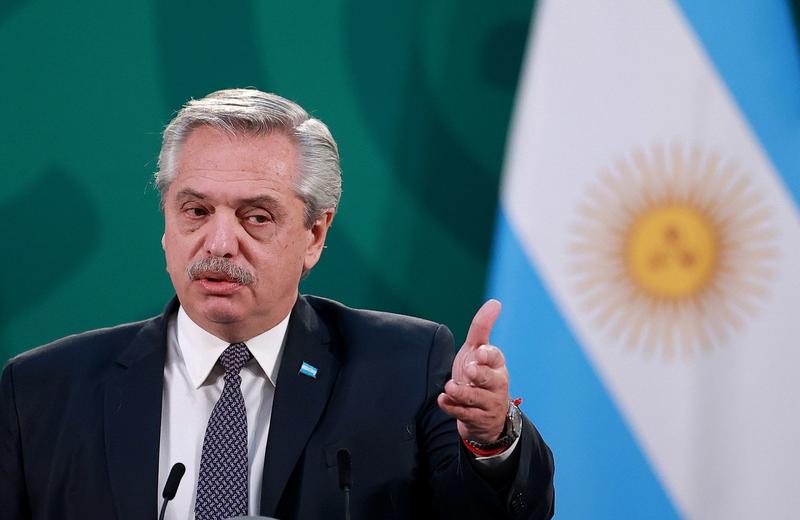 This undated photo shows the president of Argentina Alberto Fernandez. (PHOTO / BLOOMBERG)
This undated photo shows the president of Argentina Alberto Fernandez. (PHOTO / BLOOMBERG)
Argentina’s ruling coalition was dealt a big blow in a primary election that works as an early test for President Alberto Fernandez government’s two years into office.
The opposition coalition Juntos por el Cambio is unexpectedly leading for lower house representatives in the key district of Province of Buenos Aires by 4.8 percentage points with 80% of the votes counted
The opposition coalition Juntos por el Cambio is unexpectedly leading for lower house representatives in the key district of Province of Buenos Aires, which accounts for more than a third of the country’s electorate, by 4.8 percentage points with 80 percent of the votes counted. On a national level, the opposition leads by almost 10 percentage points in the race for the lower house with 90 percent counted, according to a tally compiled by newspaper La Nacion.
The primary vote to pick candidates ahead of a midterm on Nov 14 reflects voter discontent over Fernandez’s pandemic strategy, rising poverty and 50 percent annual inflation. His coalition is losing congressional battles in districts typically favorable to the Peronist government, such as La Pampa, Chubut, Chaco, Tierra del Fuego and even Santa Cruz, the home province of Vice President Cristina Fernandez de Kirchner.
ALSO READ: Argentines head to polls in litmus test for Peronists
With mandatory voting for most adults, the primary effectively serves as a nationwide opinion poll ahead of the midterm, when half of the lower house seats in congress and a third of the senate are on the ballot. While investors would cheer the anti-business ruling coalition losing significant ground, the government will now be under pressure to try to reverse these results.
“The two months leading to the actual election will test the government’s resolve. Keep an eye on populism initiatives -- such as an increase in spending, a decline in reserves or additional interventionist measures,” Adriana Dupita, who covers Argentina for Bloomberg Economics, said.
About 67 percent of the electorate cast their votes on Sunday, a record low for Argentina.


